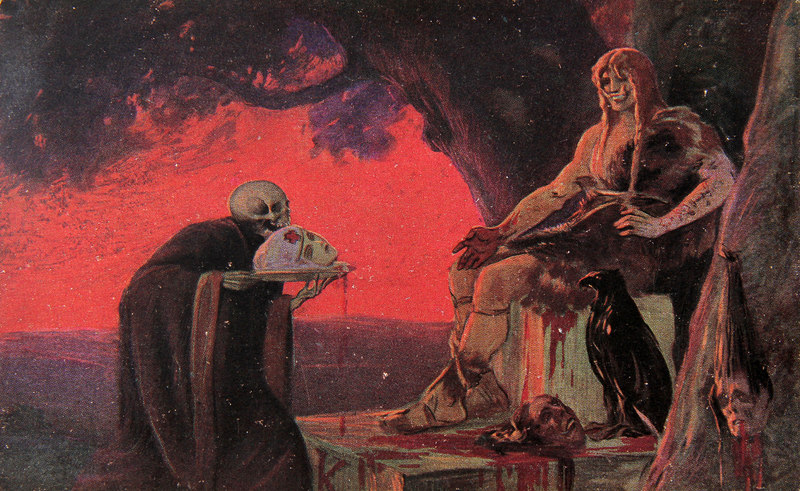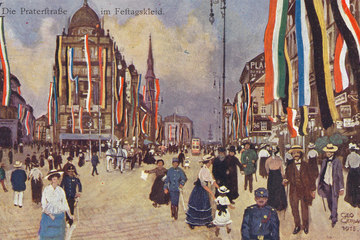
Tribute in blood paid to the German barbarians, British propaganda postcard, published by G Pulman & Sons, London, 1915
The card refers to the execution of the English nurse Edith Cavell, who was working in Belgium and was accused by the German military courts of helping prisoners of war to escape. Executed as a spy in 1915, Miss Cavell and her tragic fate were used in anti-German propaganda in order to denounce the “Teutonic furore”. On the back, the card bears the text : "Miss Cavell and German Kultur – a welcome gift for Kaiser's birthday".

